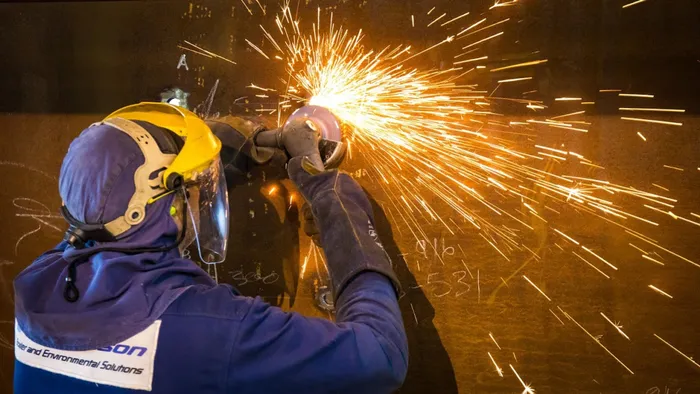John Thompson says duties on import steel affect competitiveness

John Thompson is a division of ACTOM and the designer and manufacturer of industrial boilers for the energy, manufacturing and other industries. Photo: SUPPLIED.
South African steel companies have continued coming out against the import duties on steel products as it affects their competitiveness.
This comes as South Africa last month notified the World Trade Organisation (WTO) of its intention to impose a 9% duty on hot-rolled steel products in a bid to protect the local industry from a surge in imports.
It followed the application by the South African Iron and Steel Institute (SAISI), on behalf of ArcelorMittal South Africa (Amsa), for a safeguard on hot-rolled steel in February.
John Thompson, a division of ACTOM and the designer and manufacturer of industrial boilers for the energy, manufacturing and other industries, over the weekend said the import duty on steel products was impacting its input costs and affecting its competitiveness.
John Thompson chief operations officer, Jaco Grobbelaar, said though they were in support of growing the local industry, it sometimes proved difficult as they struggled to procure locally the steel with required specifications for certain types of boilers they produce.
“At the end of the day, we are quite a large customer of Amsa and we are obviously using a lot of steel in our manufacturing process. Our aim is to always support local and support fellows of African companies,” Grobbelaar told Business Report on a site visit during the Continental Energy Investment Forum 2024 Inward Buying and Investment Mission.
“Duty imposed on the steel itself makes you less competitive and we must keep in mind that in the East they are very competitive in terms of manufacturing equipment. So that obviously will put a burden on us, and a lot of times we do find that steel from outside of the country is a lot cheaper.
“So, ultimately (the duty) is not ideal based on the type of steel volumes we are pushing through the facility and the amount of people working here. Ideally we would like to have as low as possible import costs to sustain first of all our company and also the employment of our employees,” he said.
An engineer in the boiler manufacturing business, who asked not to be named, also reiterated these sentiments about the steel import duties.
“It’s impacting us without a doubt, and very difficult because we’ve exported more than 700 boilers to Southeast Asia. Now we have to pay a duty on something that we export to Southeast Asia. It’s already quite difficult competing with those guys,” Grobbelaar said.
“I understand there’s a whole logic behind the duties and stuff, but it’s difficult for us because how do we prove that that piece of plate that we had to import because, although we try our absolute best to support the local industry, sometimes they literally can’t either meet the deadline or the due expenses or they can’t manufacture that particular thickness that we need.
“For instance, we buy 99.99% of all the plates sub-25mm but we can’t really go above that. A drum can be 80mm to 88mm thick, and locals cannot manufacture that. We have to import it. And even thinner stuff, sometimes they cannot manufacture it and now we have to pay a duty, and that’s already quite difficult being competitive.”
In February, the International Trade Administration Commission of SA gazetted a notice of the initiation of an investigation for remedial action in the form of a safeguard against the increased imports of hot-rolled steel products.
SAISI alleged in its complaint that the Southern African Customs Union industry was experiencing significant harm, causally linked to the recent surge in imports of the subject products.
They alleged that unforeseen developments had led to a surge in imports of hot-rolled steel products, adding that countries worldwide were taking urgent actions to raise tariffs and implement trade remedies to safeguard their domestic steel industries.
The National Employers’ Association of South Africa strongly disagreed with the tariff.
BUSINESS REPORT